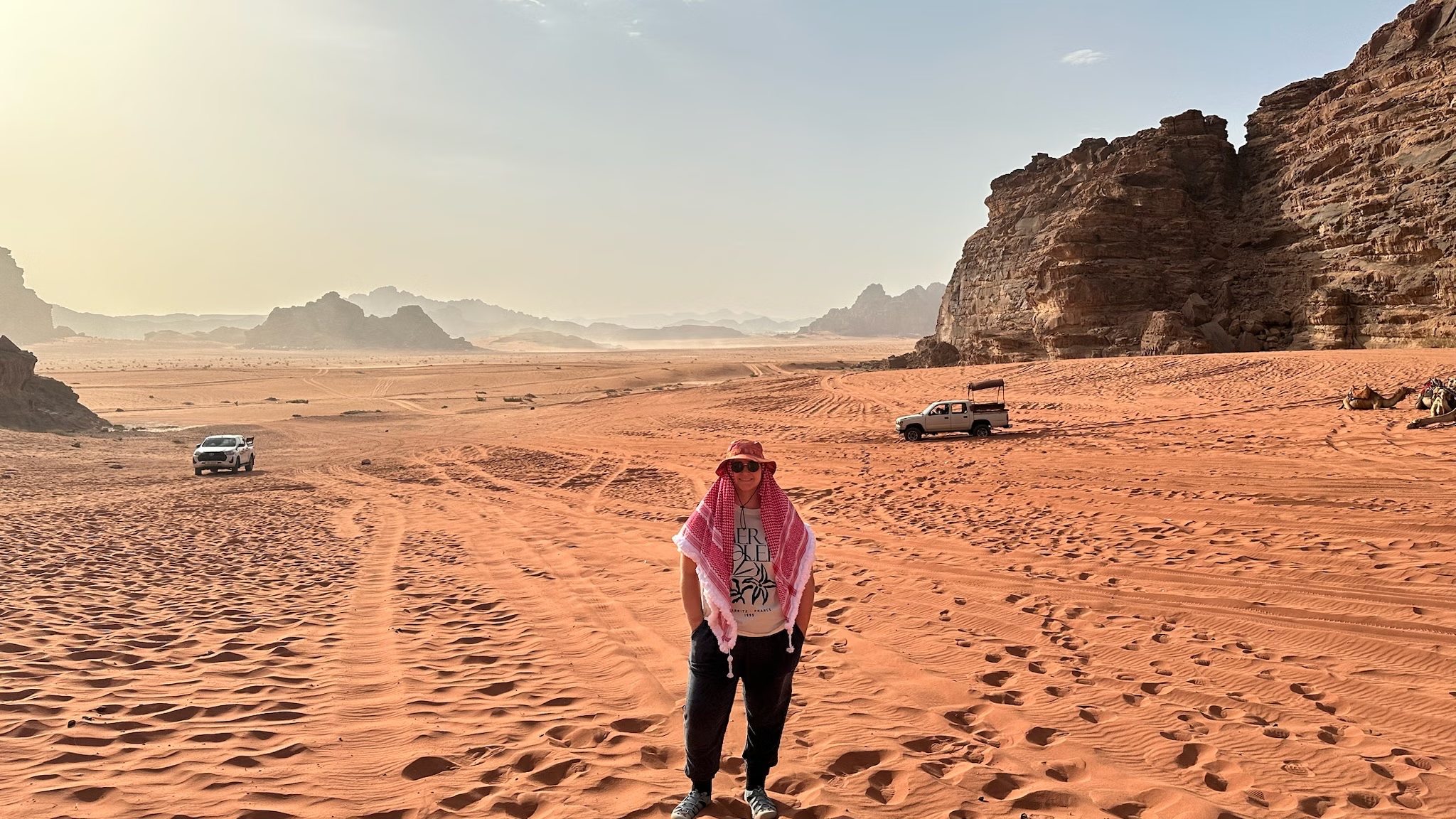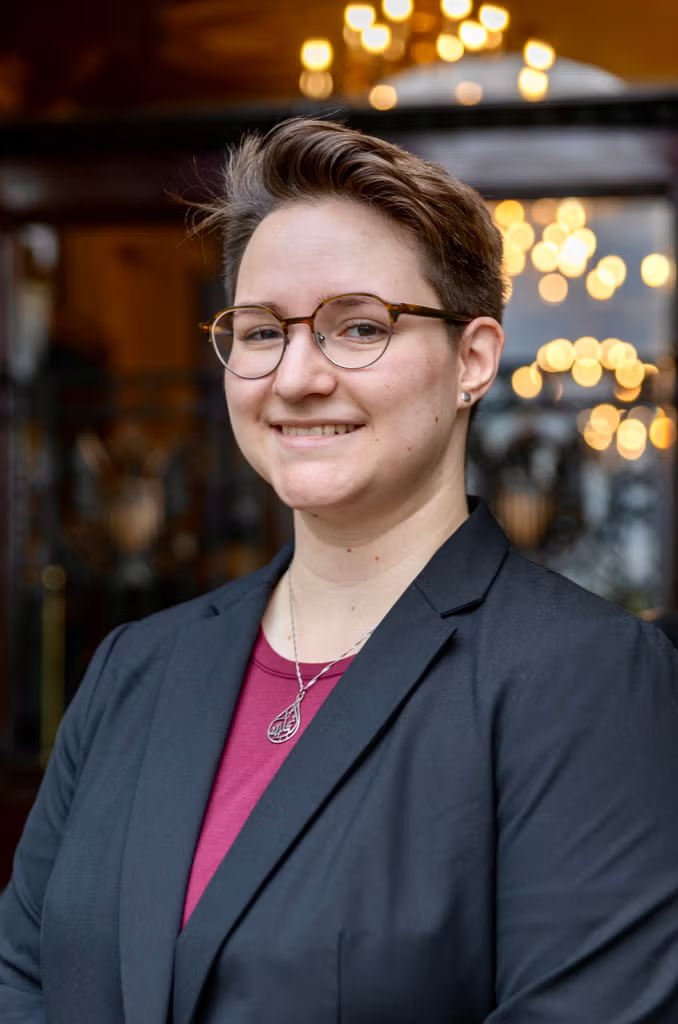
Graduating this spring with a Master of Arts in Arab Studies (MAAS’25), Angie Wright has expanded her intellectual and professional horizons through rigorous academic inquiry, intensive language study and meaningful off-campus experiences, profoundly shaping her future path in refugee and human rights law.
“I studied the Arab world in my undergraduate program, but before that, I had lived in multiple countries in the region throughout my childhood and adolescence,” Wright says. “I felt a sense of familiarity, but also an ever-increasing curiosity about its contemporary societies, cultures and politics. I knew that I wanted to focus my career on the region and ideally live in it as well, so deepening my knowledge was non-negotiable.”
Language, community and connections
Wright entered the MAAS program with foundational Modern Standard Arabic skills from her undergraduate minor but credits Georgetown with significantly advancing her language proficiency. She highlights courses with Professors Fatima Kharbouch and Mohammad Alahmad, alongside her immersive summer at Sijal Institute in Amman, Jordan, supported by a Foreign Language and Area Studies (FLAS) Fellowship: “Learning that I got [the fellowship] and finally getting to Jordan felt like those moments that you know will shape you as a person and that you’ll hold onto forever.”
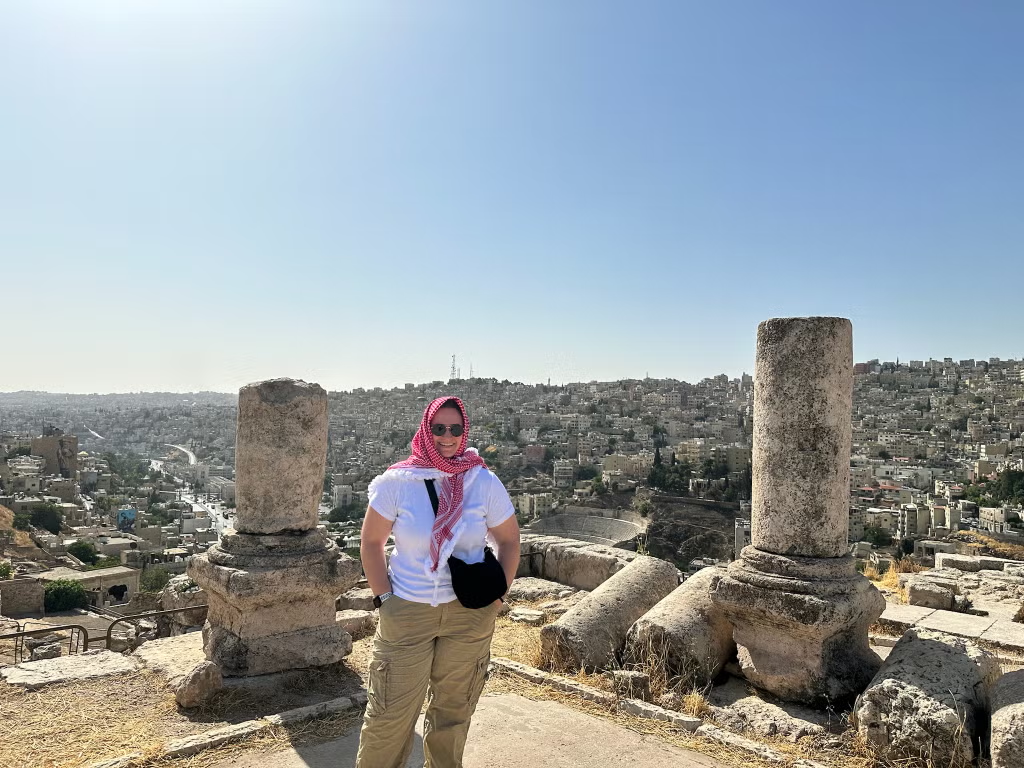
Wright describes her summer in Jordan as transformative.
“During the Eid break, [some classmates and I] from Sijal took an inclusive guided trip around the country, including Petra, Wadi Rum, Aqaba and Jerash,” she recalls fondly. “Wadi Rum was my favorite place in the country; it was unforgettable.”
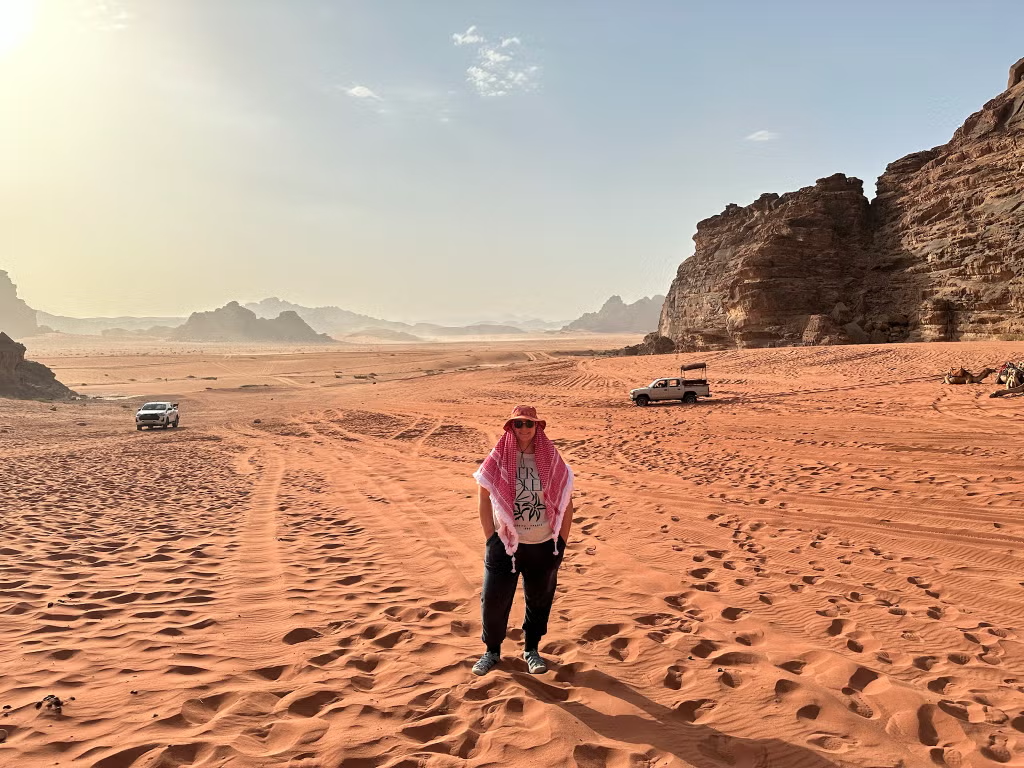
On campus, Wright found a supportive community and stimulating intellectual discussions. She valued the interdisciplinary connections she forged, especially through her role as secretary for the Migration and Refugee Policy Initiative (MRPI) at the McCourt School of Public Policy. Among other compelling and timely events, the initiative hosted semesterly mixers, providing informal yet enriching opportunities for students to connect. Additionally, Wright participated in intramural soccer with her MAAS classmates, as well as peers in other SFS programs, fostering camaraderie and teamwork.
“We didn’t win any tournaments,” Wright says with a laugh, “but we still had such a fun time.”
Wright has also found community in inclusive spaces both on and off campus, such as participating in events hosted by Georgetown’s LGBTQ+ Resource Center and even playing clarinet in a symphonic band organized by DC’s Different Drummers, an LGBTQ+ organization.
Inspiring mentors, supportive friends and profound lessons
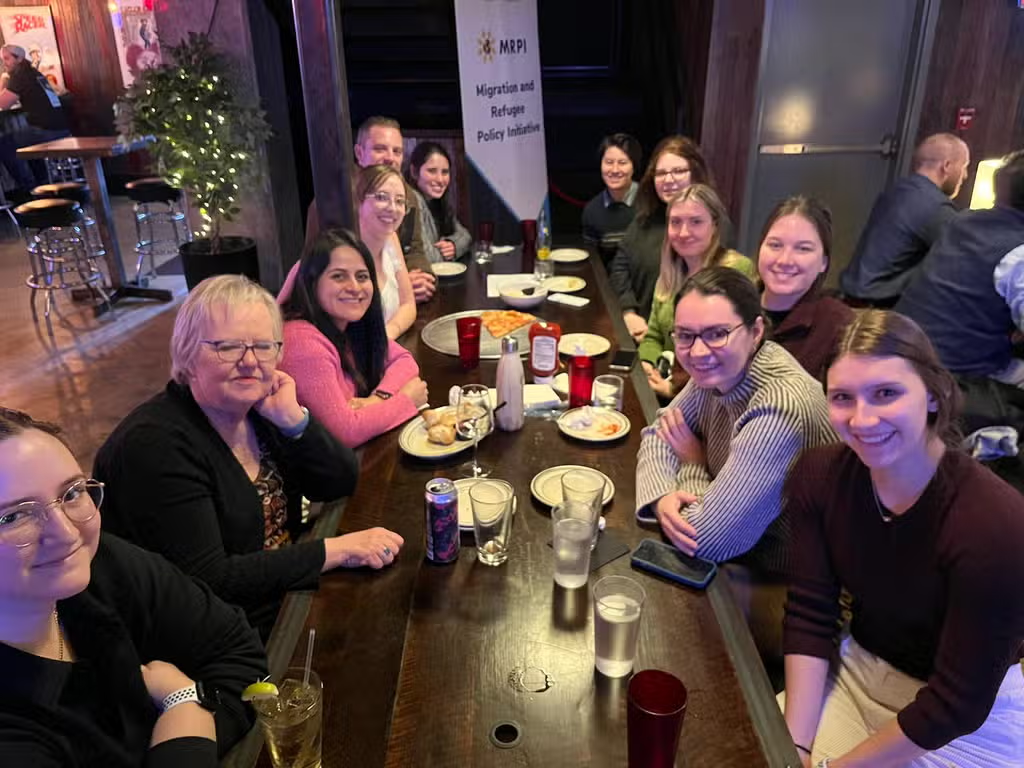
Mentorship played a crucial role in Wright’s academic journey. Professor Amanda Pinheiro, through her course Migration, Race and Ethnicity, profoundly influenced Wright, becoming “a soundboard, a person in my corner, an amplifier of my questions and passion and a true friend.” Wright emphasizes the personal impact of Pinheiro’s guidance, appreciating her role not just academically but also personally.
Professor Rochelle Davis provided significant academic and personal guidance, fortifying Wright’s pursuit of a career advocating for refugee rights and instilling in her a commitment to human-centered legal practices. “Anything I would ever want to express—questions, doubts, unsureness, silly humor—has a place to land with her,” Wright says. Davis’s openness encouraged Wright to approach her studies with creativity and bold inquiry, empowering her to envision herself making meaningful contributions to refugee law.
Additionally, adjunct Professors David Neal and Edward Kelly from the Georgetown University Law Center significantly shaped her professional aspirations through their Refugee Law and Policy class.
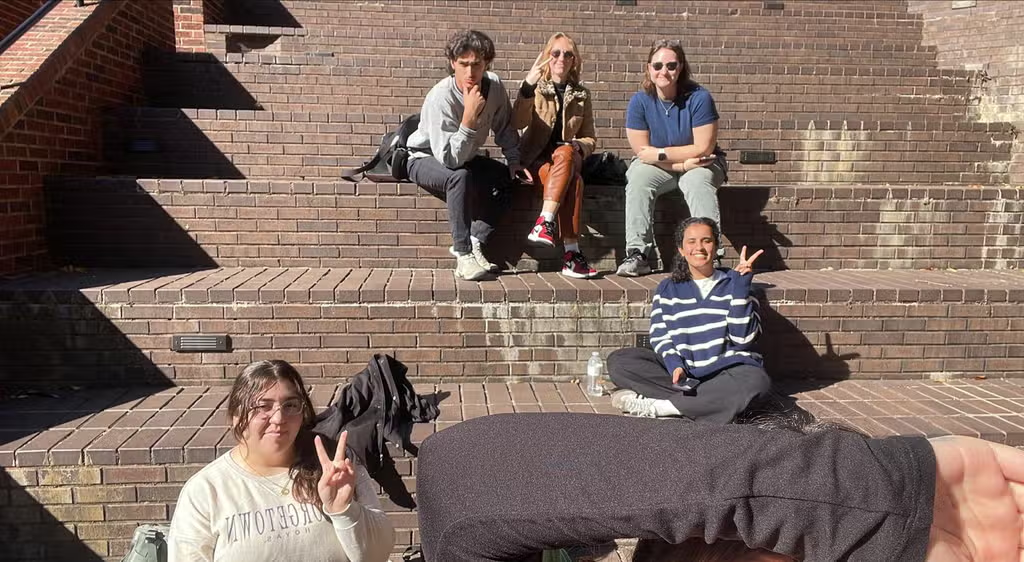
“They reciprocated my almost childlike eagerness and inquiry for the subject with the exact same energy and supported me during the semester and in my applications in ways that I am eternally grateful for,” she recalls. Their encouragement provided Wright with a critical perspective on her potential and reinforced her commitment to pursuing law school.
Alongside mentorship, Wright deeply valued the friendships she cultivated at Georgetown. Moments spent with peers, such as gathering on the steps below Red Square outside CCAS to catch up and enjoy the beautiful autumn weather, became an essential part of her Georgetown experience.
Real-world experiences and advocacy
Wright complemented her Georgetown experience with meaningful off-campus engagements, including her role as a barista at Qamaria Yemeni Coffee Co. in Vienna, Virginia. This job provided her a unique opportunity to interact regularly with a diverse community, enriching her understanding of diaspora communities within the DMV hub. Reflecting on this, she urges incoming graduate students to “Find something that nourishes your spirit.”
She also held a research assistantship with adjunct Professor Dania Thafer, exploring pertinent policy issues and gaining invaluable experience in policy research and analysis centered on the Gulf region. Wright credits these experiences with furthering her understanding of the role of scholarship in policy development and implementation.
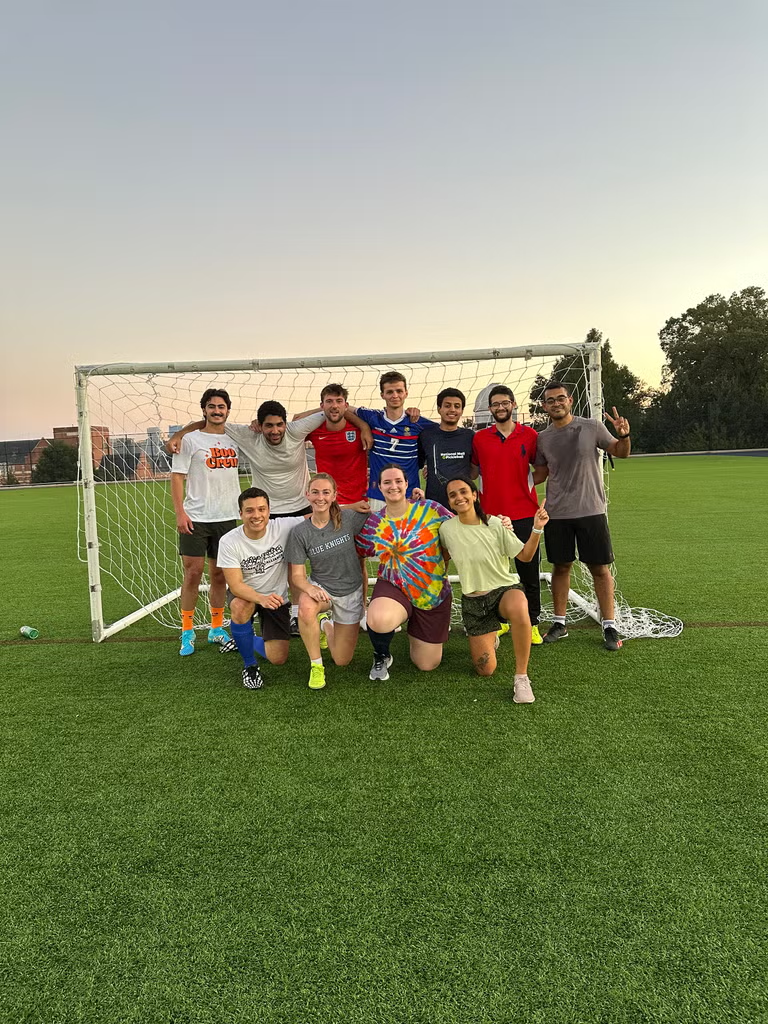
“My interest in international law narrowed down to international refugee and human rights law,” Wright says, noting how her experiences at Georgetown influenced her focus. But at the same time, “Due to current politics and taking classes focused on domestic migration policies, asylum law and constructions of race and class, I have felt a growing moral imperative to turn my attention and energy to domestic asylum and immigration law. Working to preserve legal protections for vulnerable populations in the U.S. could not be more pressing in the current moment.”
Reflecting and looking forward
As she prepares to attend Rutgers Law School next fall, Wright intends to dedicate her career to international and domestic refugee law, with a focus on the Arab world and people from it. Georgetown’s MAAS program, with its more theoretical approach and emphasis on Arab voices, not only refined her academic curiosity but also amplified her passion for advocacy and empathy.
“My broadest, most abstract goal is to push our legal and political systems in their capacity to unconditionally protect human beings and their rights,” Wright shares.
